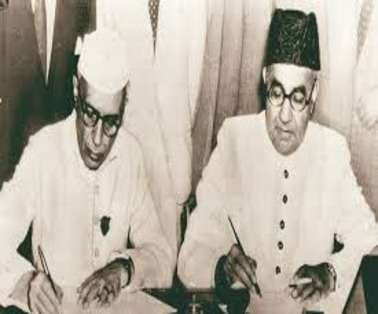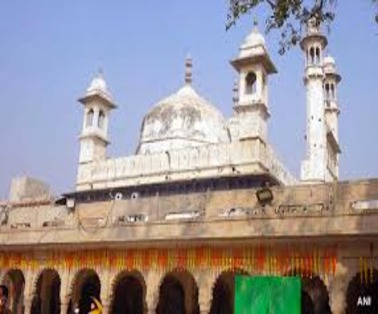It has been 73 years since the treaty of Nehru- Liaquat pact signed between India and Pakistan.
Key Points On Nehru-Liaquat Pact
- The Nehru-Liaquat Pact, also known as the Delhi Pact, was a bilateral agreement signed between India and Pakistan in order to provide a framework for the treatment of minorities in the two countries.
- It was signed by the prime ministers, Jawaharlal Nehru and Liaquat Ali Khan
- The need for such a pact was felt by minorities in both countries following Partition, which was accompanied by massive communal rioting.
- In 1950, as per some estimates, over a million Hindus and Muslims migrated from and to East Pakistan (present day Bangladesh), amid communal tension and riots such as the 1950 East Pakistan riots and the Noakhali riots.
About Nehru-Liaquat Pact
- Both India and Pakistan agreed to take measures to protect the life, property, and honor of their respective minorities.
- The pact emphasized that all citizens, regardless of their religion or ethnicity, should have equal rights and opportunities in their respective countries.
- Both countries pledged to eliminate discrimination based on religion, race, caste, or creed, and to promote a sense of security among minority communities.
- The pact provided for the return of any minority individuals who had migrated from one country to the other after the partition and wished to return to their former homes.
- The agreement recognized the importance of preserving the cultural and educational rights of minorities, including the protection of their language, script, and religious institutions.
Criticisms of Nehru-Liaquat Pact

Syama Prasad Mookerjee
- Syama Prasad Mookerjee had died purportedly of a heart attack, on June 23, 1953.
- Despite his antagonism with Nehru and the Congress, Mookerjee was actually a part of the first Union Cabinet under the premiership of Nehru himself.
- He was inducted into the interim government on August 15, 1947, as the Minister for Industry and Supply.
- However, he resigned in April 1950 over the controversial Nehru-Liaquat Pact.
What Was SP Mukherjee’s Issue With The Pact?
- Mookerjee had initially been an advocate for a united India, but as Partition became increasingly inevitable, he shifted his focus towards advocating for a divided Bengal, with West Bengal specifically meant for Hindu Bengalis.
- Thus, when the Delhi Pact was signed, promising minority rights and the setting up of minority commissions in both India and Pakistan, Mookerjee was incensed.
- Looking at the huge influx of Hindu refugees from East Pakistan, he felt that the Pact was a betrayal of the logical outcome of the Partition – a Hindu India and a Muslim Pakistan.
- He felt that the Pact would essentially leave Hindus in East Bengal at the mercy of the Pakistani state.
- Instead, he argued for a systematic exchange of population and property at the governmental level between East Bengal and the states of Tripura, Assam, West Bengal and Bihar
What Did SP Mookerjee Do Following His Resignation?
- By 1950, Mookerjee had also fallen out with the Hindu Mahasabha, an organisation which he found “myopic” in its approach to national problems.
- Thus, after he resigned from his ministership, he turned his focus to starting a new party.
- With the help of the RSS, he founded the Bharatiya Jan Sangh in 1951, a party which contested and won three seats in the 1952 elections.
- While he himself died before seeing his party rise to prominence, he laid the roots for the dominance of the Bharatiya Janata Party – the successor of the Jan Sangh – that is seen today.
- “Ek desh mein do Vidhan, do Pradhan aur Do Nishan nahi chalenge” (trans: “One country cannot have two constitutions, two prime ministers and two flags”),
To Download Monthly Current Affairs PDF Click here
Click here to get a free demo
Everything About CLAT 2025
Frequently Asked Questions
The Nehru-Liaquat Pact is also known as?
The Nehru-Liaquat Pact is also known as Delhi Pact
What is the Key provisions of the Nehru-Liaquat Pact?
Key provisions of the Nehru-Liaquat Pact is to take measures to protect the life, property, and honor of their respective minorities
Syama Prasad Mookerjee was the founder of?
Syama Prasad Mookerjee was the founder of Bharatiya Jan Sangh



